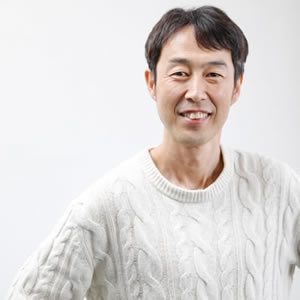
Q1. Professor Yamada, what kind of lectures are you planning to have in the Field of Environment and Society?
A1. The Field of Environment and Society Studies will have many kinds of lectures that allow us to learn environmental problems through an interdisciplinary approach. In order to solve the environmental problems, we need many kinds of viewpoints including natural science, low, sociology, economics etc. You can learn all of them at the Department of Integrated Global Studies. Among the IGS lectures, I will giveGlobal Environmental Issues from the Social and Scientific Perspectives.
Q2. Professor Yamada, what kinds of studies are you conducting?
A2. I am aiming to make a better world that friendly to our planet’s biodiversity. I would like to explore mechanisms for it. For example, I am searching a way to conserve tropical forests which harbour full of biodiversity. Maybe to stop all land development that destroys tropical forests may be one step to do it. But this may be too rigid to feasible. Instead, it would be better to find new land development strategies that little destroy biodiversity, in order to balance the demands of society and conserve the biodiversity of our forests.
Q3. Can you give us a message to high school students?
A3. I want them to be flexible in their thinking. I believe that flexible thinking can lead to great discoveries. Adults often say that “I’m too old, so I can’t think flexibly anymore”, but I think that is not true. I think it doesn’t matter how old you are when thinking flexibly. People who say such a thing must have been thinking the same way since they were young. However, I also recognize that to think flexibly is quite difficult. To be able to think freely in important situations, we need to always exercise to think flexibly. Hence, I think it is really important to try thinking flexibly in our daily lives.

 Home
Home